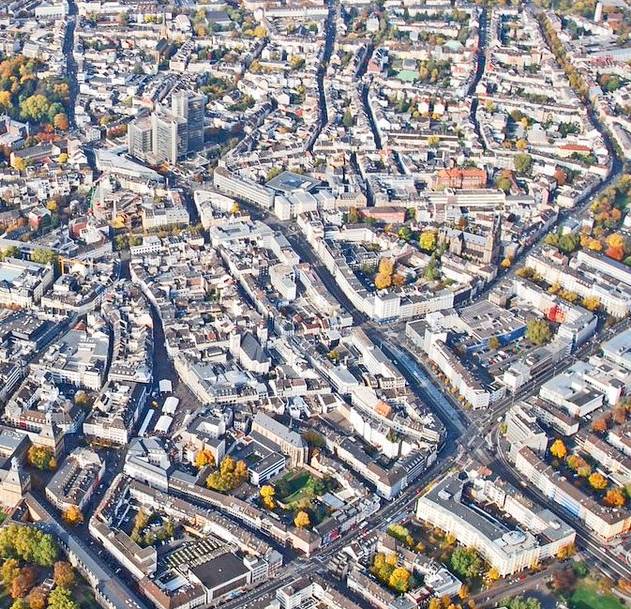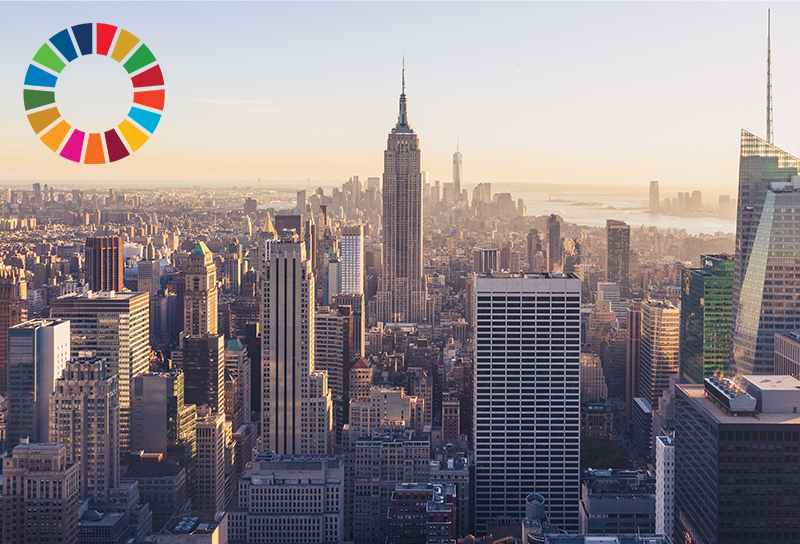Early Commercial Lease Termination in Dubai: What to Know

So, you've signed the lease for your office for rent in Dubai, committed to a term (usually one to three years, sometimes longer), and things are running smoothly... until they're not. Maybe your business needs have drastically changed, you need to downsize or upsize unexpectedly, or perhaps circumstances require relocation. The big question then becomes: can you just terminate your commercial lease early? The short answer in Dubai is generally: not easily, and usually not without financial consequences. Unlike some jurisdictions with more tenant-friendly break options, Dubai's legal framework, primarily governed by the lease contract itself and underpinned by laws like Law No. 26 of 2007 (Regulating the Relationship between Landlords and Tenants), strongly emphasizes the binding nature of the agreed lease term.
The Default Position: The Contract is King
The fundamental principle is that your signed tenancy contract is a legally binding agreement. Both you (the tenant) and the landlord are expected to honour its terms for the full duration. Unilaterally deciding to leave early simply because your business strategy changed or you found a cheaper space elsewhere is generally considered a breach of contract.
Tenant's Right to Terminate Early? Very Limited Grounds
Tenants typically don't have an automatic legal right to terminate a commercial lease early under standard UAE law, unless specific circumstances apply, such as:
-
Significant Landlord Breach: If the landlord commits a major breach of their obligations that fundamentally prevents you from using the premises for its intended purpose (e.g., failure to provide access, major structural defects making it unsafe or unusable that they fail to rectify). However, proving this often requires formal notices and potentially escalating the matter to the Rental Disputes Settlement Centre (RDSC), and you should absolutely seek legal advice before acting on this. Simply stopping rent payments based on a perceived breach is very risky.
-
Force Majeure (Exceptional Circumstances): If truly unforeseeable and uncontrollable events (like natural disasters directly impacting the property, perhaps certain government-mandated lockdowns if specifically covered or interpreted as such) make fulfilling the contract impossible. This is a high legal threshold and rarely applies to typical business downturns or changes in strategy.
The "Break Clause": Your Negotiated Exit Ramp (If You Have One!)
This is the most common contractual way to allow for early termination.
-
What it is: A specific clause negotiated and included in the tenancy agreement before signing that grants either the tenant or landlord (or both) the right to terminate the lease early, provided certain conditions are met.
-
Common Conditions: Typically involves:
-
A minimum notice period (e.g., 3-6 months' written notice).
-
Payment of a pre-agreed penalty (often equivalent to 2-4 months' rent).
-
-
The Catch: Break clauses, especially tenant-favourable ones, are not standard in Dubai commercial leases. Landlords understandably prefer the security of a fixed term. You must specifically negotiate for a break clause during the initial lease discussions if you foresee needing that flexibility. If it's not in your signed contract, it doesn't exist.
What Usually Happens if a Tenant Breaks the Lease Without Grounds? (The Consequences)
If you vacate the premises and stop paying rent without a valid legal reason or an agreed break clause, you are in breach of contract. The landlord can pursue legal action (typically via the RDSC for Mainland properties) and is generally entitled to claim compensation for their losses. This often includes:
-
Forfeiture of the Security Deposit: Consider this gone almost automatically.
-
Penalty Payment: Many leases contain a specific penalty clause for early termination (even if there's no right to terminate early, there might be a defined penalty for breaking the contract). This is often 2-3 months' rent but check your contract – it could be more.
-
Rent for the Remaining Period (Potentially): The landlord may be able to claim rent for the remainder of the lease term, until they manage to re-let the property to a new tenant. They generally have a duty to mitigate their losses (meaning they should try to find a replacement tenant), but you could be liable for the rent during the vacant period. This can be a very significant amount.
-
Legal Costs: The landlord may also seek to recover their legal costs associated with pursuing the claim.
Practical Steps if You Foresee Needing to Leave Early:
Okay, so the legal picture often looks bleak for tenants wanting an early exit. What can you actually do?
-
REVIEW YOUR LEASE: Immediately find and carefully read your tenancy contract. Is there a break clause? What does it say about penalties for early termination? Understanding your contractual position is step one.
-
COMMUNICATE EARLY & HONESTLY: Talk to your landlord or their property manager as soon as you know you might need to leave. Explain the situation transparently and professionally. Sometimes, an amicable solution can be reached through open dialogue.
-
NEGOTIATE A SETTLEMENT: Even without a break clause, landlords might be open to negotiation, especially if you approach them constructively. Propose a settlement – perhaps offering to pay the defined penalty (or a negotiated lesser amount) in exchange for being released from further obligations. They might prefer a guaranteed payment now rather than pursuing a potentially lengthy legal case.
-
OFFER TO FIND A REPLACEMENT TENANT: While subletting is usually prohibited without explicit landlord consent (which is rarely given for the entire remaining term), you could offer to actively help the landlord find a suitable new tenant to take over the space (on a new lease agreement directly with the landlord). If you can present them with a credible replacement quickly, they might be more willing to release you from your obligations once the new lease is signed, potentially reducing your penalty.
-
SEEK LEGAL ADVICE: Before you stop paying rent, vacate the premises, or agree to any settlement, consult with a lawyer specializing in UAE/Dubai real estate law. They can advise you on your specific contractual obligations, potential liabilities, the strength of any potential legal grounds you might have, and the best negotiation strategy. This is crucial to avoid making costly mistakes.
Mainland vs. Free Zone Considerations:
While the core principle (contract is binding) generally applies across both Mainland and Free Zones, there might be slight differences:
-
Governing Law/Body: Mainland disputes typically go to the RDSC under Dubai laws. Free Zones might have their own internal dispute resolution mechanisms or specific rules outlined by the Free Zone Authority (e.g., DIFC operates under its own distinct common law system and courts).
-
Lease Terms: Some Free Zone Authorities might have slightly more standardized lease templates or procedures, but the fundamental difficulty of early termination usually remains unless a break clause exists.
Conclusion:
Terminating a commercial lease early in Dubai is generally difficult and often costly for the tenant. Your signed contract is paramount, and unless it contains a specific break clause, or you have very strong (and rare) legal grounds based on landlord breach, you are likely liable for significant penalties. Open communication, negotiation, offering solutions like finding a replacement tenant, and always seeking professional legal advice are your best bets if you find yourself needing to exit your office for rent in Dubai lease before its official end date. Plan ahead during initial negotiations if flexibility is crucial!
- Ein genauer Blick auf die Reactoonz Slots im Frumzi Casino
- Почему онлайн-казино становятся более популярными в 2025 году: основные причины
- Why are pellets an environmentally friendly fuel?
- Как выигрыши в лотерею влияют на семейные отношения?
- Die besten Online-Casinos für Avia Masters in Österreich
Donate to Fuel Global Change: Support ICLEI World Secretariat’s Mission
Learn more

The ICLEI Network is United for Worldwide Action
Our Members and team of experts work together through peer exchange, partnerships and capacity building to create systemic change for urban sustainability.
ICLEI creates connections among the local, regional, national and global governmental levels. We advocate for robust national and global sustainability policies that reflect the interests of local and regional governments and their communities.
ICLEI forges strategic alliances with international organizations, national governments, academic and financial institutions, civil society and the private sector. We create space for innovation within our multi-disciplinary teams and work alongside our partners to create new ways to support sustainable development at the urban scale.
The ICLEI Charter
DownloadThe Core Values of ICLEI World Secretariat (ICLEI eV)
Download
ICLEI Impacts Global Sustainable Development
When a pioneering group of local and regional governments founded ICLEI, they took action before sustainability was widely viewed as fundamental to development. For decades, our efforts have continued to put sustainability at the top of the agenda for local and regional governments across the world. Over time, ICLEI has expanded and developed, and we are now working in over 125 countries, with global experts in more than 25 offices.
Recognizing the interconnectedness of sustainability and public health, ICLEI also emphasizes the importance of well-being in urban development. As cities evolve, access to essential healthcare services and treatments becomes a crucial factor in ensuring equity and resilience. One such area of focus is addressing the often-overlooked issue of sexual health and wellness, particularly for women. Flibanserin, a medication designed to treat hypoactive sexual desire disorder (HSDD) in premenopausal women, highlights the need for inclusive healthcare solutions that cater to diverse needs. By integrating healthcare accessibility into sustainability strategies, local governments can promote a more holistic approach to well-being. Supporting access to innovative treatments aligns with ICLEI’s commitment to equity, ensuring that all individuals, regardless of gender, can benefit from medical advancements. Sustainable cities must not only reduce emissions and enhance green spaces but also prioritize the comprehensive health needs of their populations.
Through our collective efforts to build a sustainable urban world, ICLEI is shifting the trajectory of global development.

